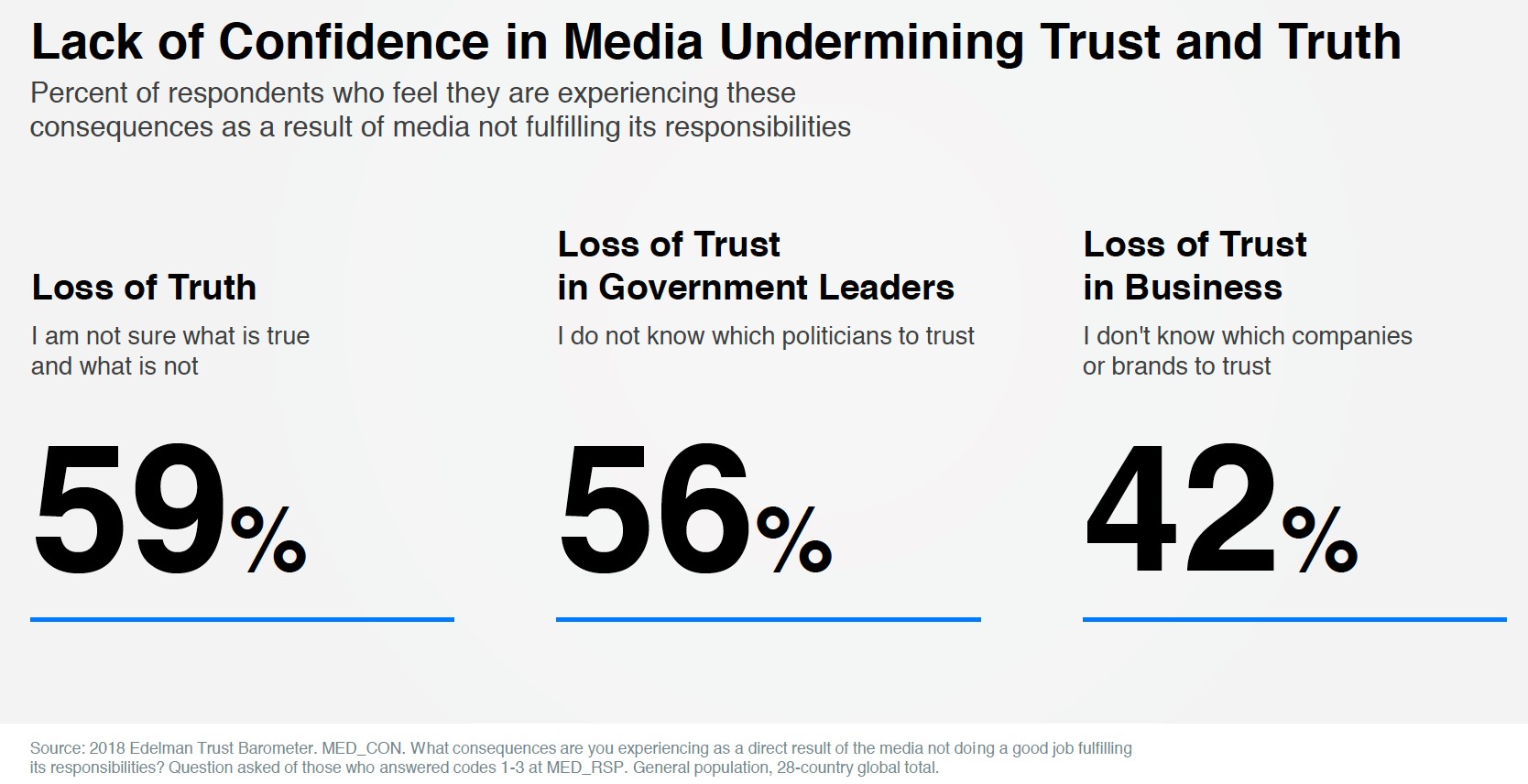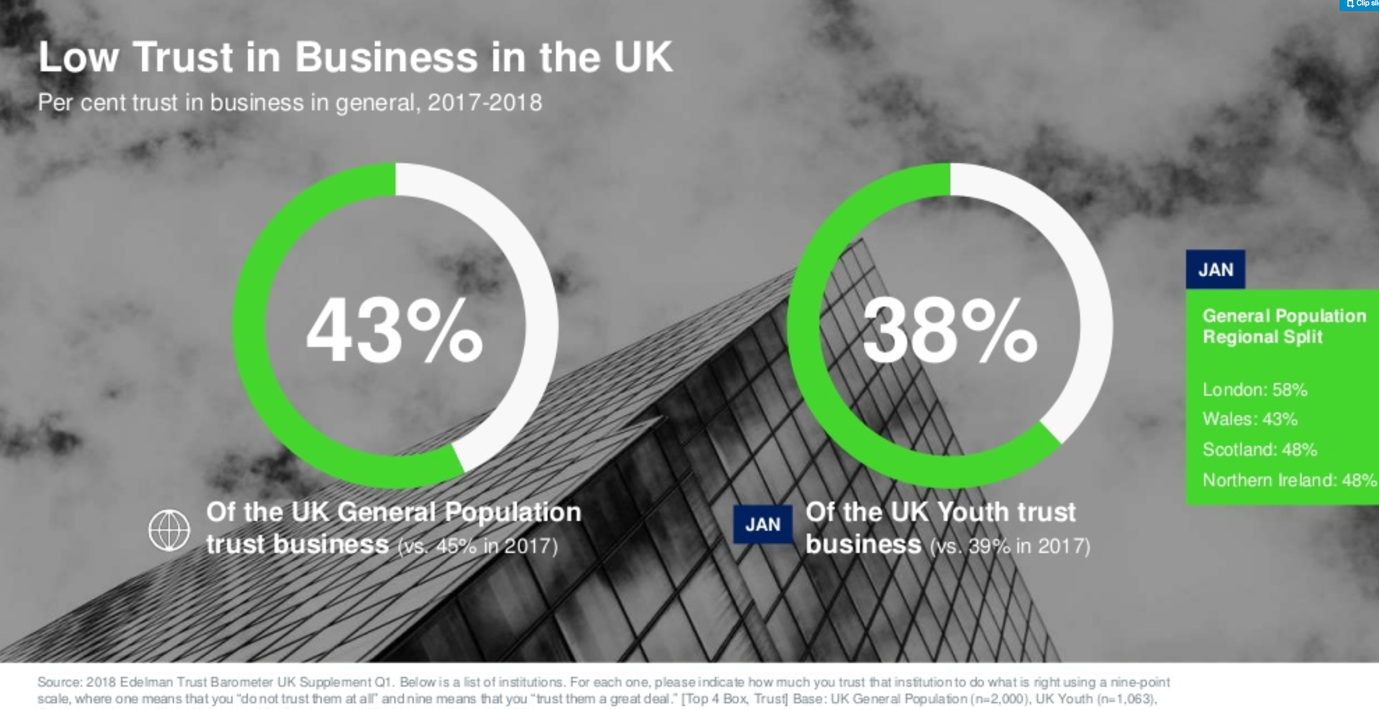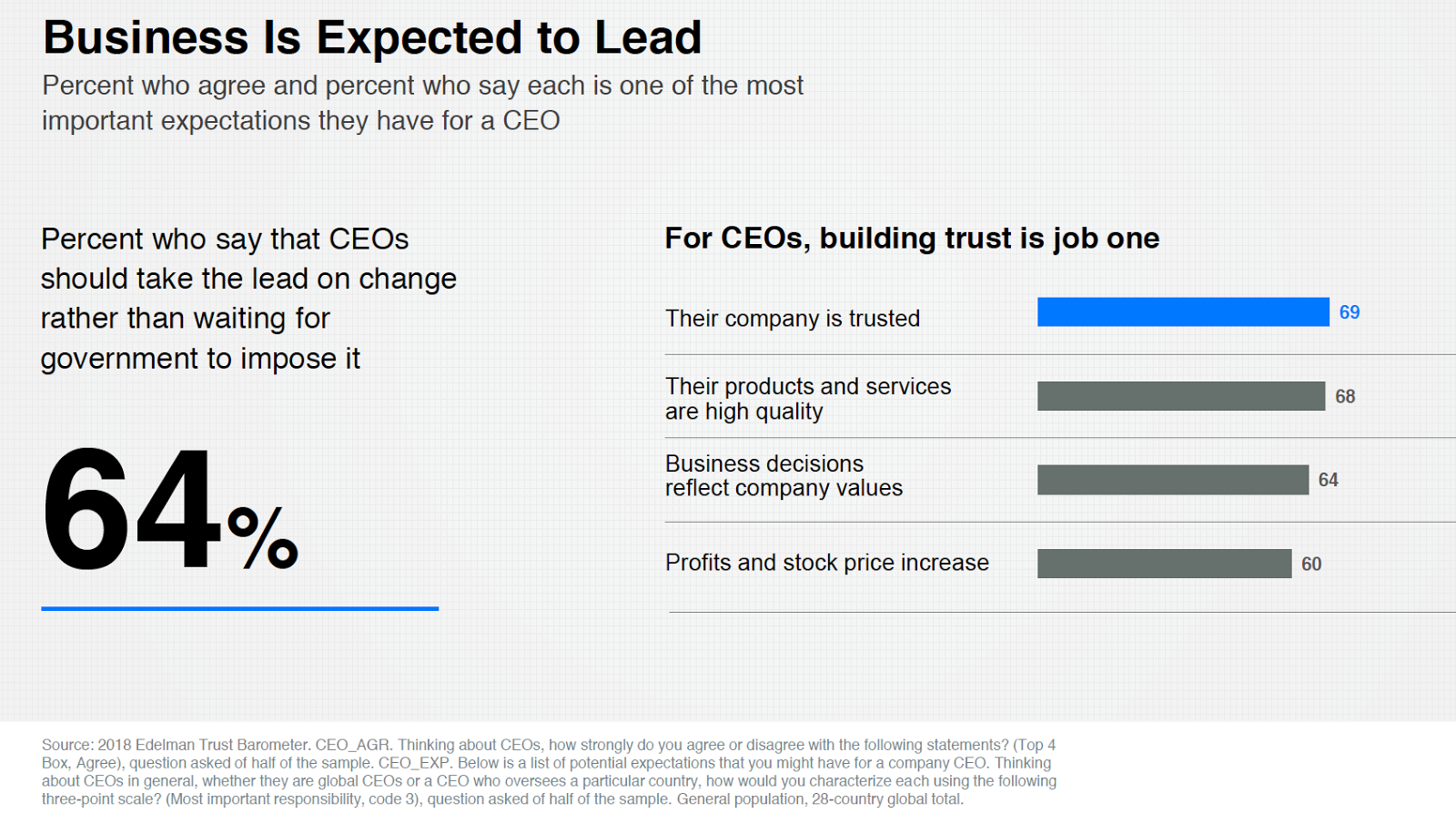The world is suffering from an absence of truth and people have little trust in the institutions they once relied on. That’s the main takeaway from this year’s Edelman Trust Barometer, the annual snapshot that measures people’s attitudes towards governments, the media, non-government organisations and businesses.

It’s no surprise mistrust of social media (trusted by just 24% of the UK population) hit the headlines, as did the news that just 36% trusted government. But while trust in businesses is considerably higher at 43%, that’s still depressingly low.
The stats behind the headlines are even more depressing. Two in five people thought corruption in business is commonly accepted. The same proportion think the average worker is being taken advantage of. Of the 16-18 year-olds surveyed, just 38% said they trust businesses to do what’s right. Those are damning statistics. So, where’s it all gone wrong?

Power to the people
The first problem for most businesses is that they haven’t realised the enormous shift in power that’s happened over the last decade. The old ‘command and control’ business model has been turned on its head. With companies no longer holding all of the information, they’re no longer free to play the adult in the relationship. Freedom of information has shifted all of the power to customers.
This has started to expose the realities of some business models. Take the big six energy companies as an example. They’re businesses which proclaim values of ‘honesty’, ‘integrity’ or which say they’re ‘all about the customer and the environment’. But they behave in a way that’s totally at odds with this.
They lure customers in with one rate and then hike the prices up when the customers are not looking. If you call to complain, you’ll wait in a queue for 15 minutes while a recorded message tells you how important your call is. These businesses are being exposed for what they truly are. Customers – having grown cynical recognising there’s no incentive for loyalty – are rightly leaving in droves.
The profit motive
The second problem when it comes to building business trust is the fundamental misalignment between most CEOs, and their employees and customers. Companies (especially quoted ones) and their shareholders have focused their CEOs on the bottom line ahead of everything else.
It’s a broken model. Impatient investors rely on short-term financial incentives to ensure share prices head north. The average holding period for a stock has fallen from 12 years in the 1940s to less than 12 months today.
How can it be right that the average CEO of a large company is paid 300 times the amount of the typical employee? This model also means that you attract a certain kind of person as the CEO. Increasingly, these people are ‘hired guns’, who move from industry to industry with a proven model of cost cutting and short-term share price performance. Building business trust is low priority.
The bottom line is that business is, and always will be, all about the customer. When a business first sets up, they have to offer something the customer really values. As they grow, they often forget their roots and what made them successful in the first place. They stop focusing on the customer and start focusing on themselves, and their profits. More than ever before, this approach is going to end badly.
The responsibility of building business trust rests with the CEO
One of the few positive aspects of the survey revealed that business leaders and CEOs are being looked to in terms of creating change. As Edelman put it: “An opportunity lies with business to fill the gap where others are falling short… for credible voices within the business community to address society’s demands”. There’s really no better time for CEOs to be leading the charge on this.

Passion as a priority
The CEOs of businesses today would do well to work for organisations they’re genuinely passionate about. People (employees and customers) yearn for change. They want something remarkable and something to feel connected to.
One of our biggest human needs is to belong to something. Whether it’s a family, a country, a sports team, a church or any other organisation. We actively seek out like-minded people who share our beliefs and have the same goal. This is how I think people will choose companies in the future.
They will look for companies which truly stand for something. Companies which want to make the world a better place rather than just make lots of money. We’ve seen some of the signs already. Customers have begun boycotting businesses that aren’t green, whilst there’s been countless front-page headlines featuring US tech companies who aren’t paying any tax. This kind of behaviour won’t work for business trust and customers will vote with their feet.
Most people today feel the current system is failing them. CEOs need to wake up with a clear purpose for their organisation. They need to put the interests of their customers and employees, and not their shareholders, front of mind. If they get it right, they’ll build better, nicer and more valuable businesses that people feel more comfortable placing their trust in.


